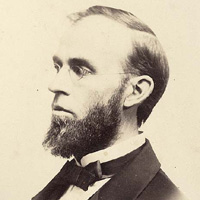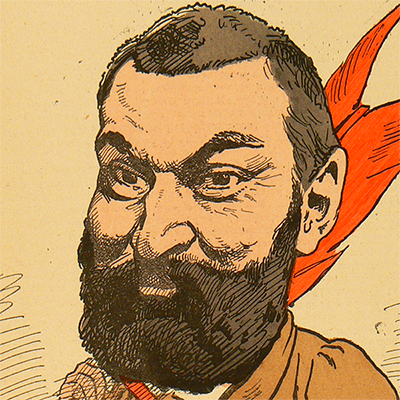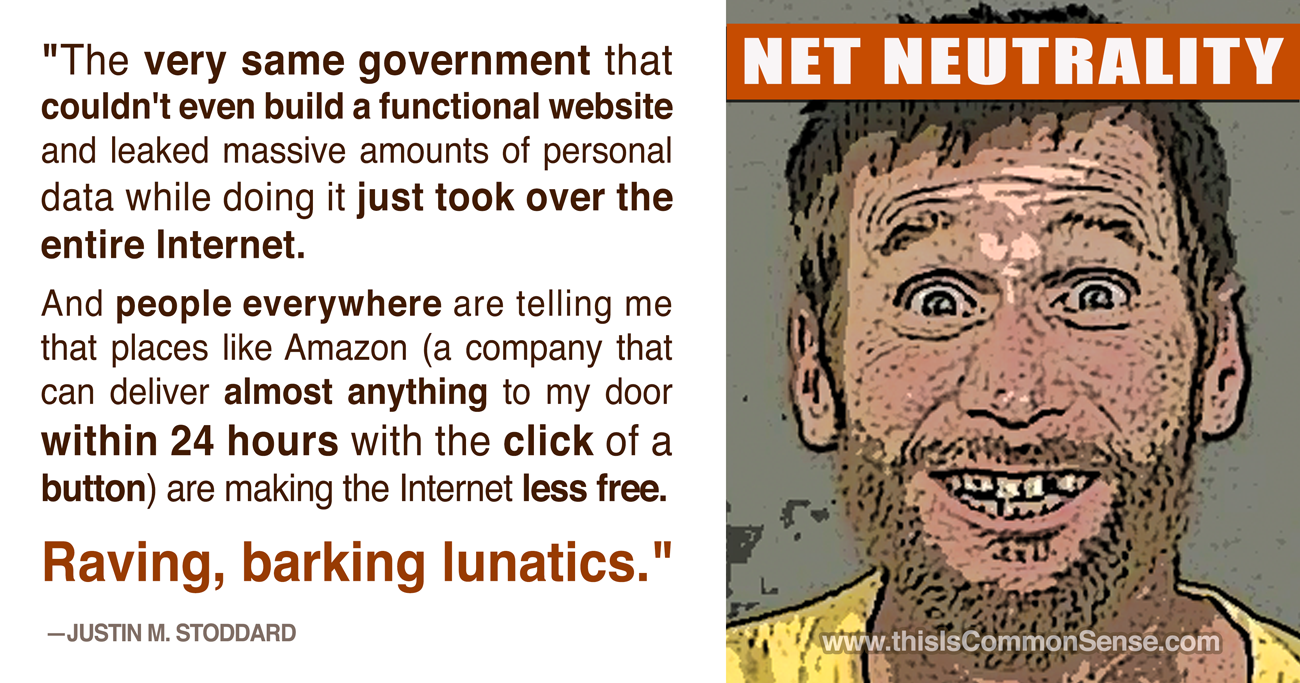Big moves and much talk about net neutrality in recent days. If your head is swimming, maybe try these two videos from Reason TV:
Video: Instead of Internet Neutrality


Big moves and much talk about net neutrality in recent days. If your head is swimming, maybe try these two videos from Reason TV:

One of the chief charms of Political Economy is the open secret, that it deals not with rigidities and inflexible qualities and mathematical quantities and the unchanging laws of matter, but with the billowy play of desires and estimates and purposes and satisfactions, all of which are mental states, and all of which are subject in the general to ascertainable laws, though laws of a quite different kind from those of Mechanics. Values come and they go. Within certain limits and under certain conditions they may be anticipated and even predicted, but never with the precision of an eclipse or the result of a known chemical combination.

Sounds like a Zen riddle, but it’s really about the riddle of victimhood-worship.
Emily Yoffe writes an advice column called Dear Prudence. A female reader reported a problem pertaining to workplace bias against women. Although she works in a “very masculine scientific field … I have never really suffered from sexism.”
Hmmm. Why not? “Maybe I’m just awesome at playing the man’s game (or in denial and don’t have an eye for sexism?).”
It is probably not denial. It is pretty easy to detect abusive treatment when you’re on the receiving end and not rationalizing it away. The bigger problem, though, is that “even quite reasonable and pleasant women” of her acquaintance get nasty when she can’t “contribute to their list of crimes committed by the patriarchy.”
What to do? She dislikes unpleasantness, but doesn’t want to lie.
One thing to do is recognize it’s not up to you to make unreasonable people reasonable. When no discussion is possible, take your conversation elsewhere. I also advise skipping gratuitous self-doubt.
Happily, Ms. Prudence and I are on the same wavelength.
“My general advice,” she writes, “is that it’s best not to engage with unpleasant people.… But if you feel like it, you can also counterpunch by saying something like, ‘It’s funny, but the only people who try to bully me are women who aren’t in my profession.’ ”
Commonsensical minds think alike, I guess. Ask me for advice any time.
This is Common Sense. I’m Paul Jacob.

On February 27, 1830, American economist and free trade advocate Arthur Latham Perry was born.
| The Twenty-second Amendment to the United States Constitution, limiting Presidents to two terms, was ratified on February 27, 1951.

“The effect of a protective duty on any commodity is to raise the price, not only of the amount imported, but of the whole quantity sold in the country; it is a private tax placed upon consumers for the benefit of producers.”
Yves Guyot (6 September 1843 – 22 February 1928) was a French politician and economist.
He was an uncompromising free-trader.

“The very same government that couldn’t even build a functional website and leaked massive amounts of personal data while doing it just took over the entire Internet.
And people everywhere are telling me that places like Amazon (a company that can deliver almost anything to my door within 24 hours with the click of a button) are making the Internet less free.
—Justin M. Stoddard
Get a high-resolution screensaver of this image. Click on the image below to open large version that you can download.

On Tuesday’s The Five, a Fox news opinion chat show, in the wake of the Mall of America terrorist threat, Greg Gutfeld decried “gun-free zones” advancing the “more guns, less crime” argument that economist John Lott has more famously made.
Mr. Williams expressed incredulity. “I don’t think that makes sense, that everybody in the mall has a gun. Let the police protect us.”
Gutfeld laughed. There was banter. Some accusatory explanation. Oh, you lefties! But then Gutfeld regrouped.
“This is not an either/or — like everybody’s armed [or] everybody’s not. The concealed [carry] permit creates a level of uncertainty on the people that are choosing an attack.”
Other things being equal, the secretly (or discreetly) gun totin’ are safer than the rest of society. The more folks who secretly carry means that those prone to violence face higher risks.
There may be more than one reason why gun violence has plummeted over the past two decades. But one must be this: as Americans have accumulated more guns per capita than ever before, as more households possess guns than ever, the “celerity of punishment” (that old Benthamite term for swiftness of bad repercussions) has increased, nudging the marginally criminal to choose to commit fewer violent crimes.
Making society safer.
Since Williams seemed to have some difficulty with this, let’s translate it for him: compare gun violence and peaceful gun ownership to viral infection and vaccination.
It’s herd immunity, only to violence. Just as the more vaccinated make us all safer, the more peaceful people discreetly carrying guns make us all safer.
This is Common Sense. I’m Paul Jacob.
The Twenty-second Amendment to the United States Constitution, limiting Presidents to two terms, was ratified on February 26, 1951.
February 26 marks the Dominican Republic’s Independence Day.

“Security to the persons and properties of the governed is so obviously the design and end of civil government, that to attempt a logical proof of it would be like burning tapers at noonday, to assist the sun in enlightening the world.”
In Law #46 of February 25, 1947, the Allied Control Council formally proclaimed the dissolution of Prussia.